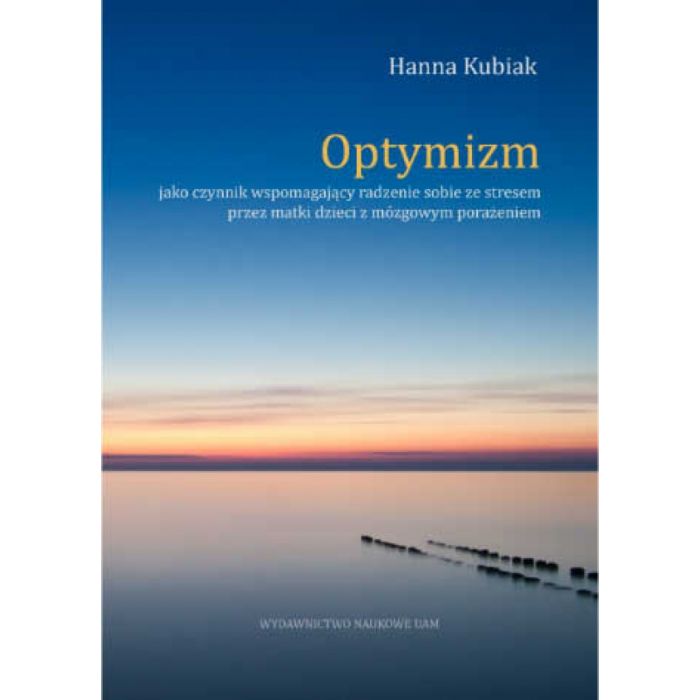Optymizm jako czynnik wspomagający radzenie sobie ze stresem przez matki dzieci z mózgowym porażeniem
- In Stock: in stock
- ISBN: 978-83-232-2521-8
- Category: OUTLET, Psychology and Education, Medical Sciences
- Year of publication: 2012
Książka dotyczy zagadnień dotyczących sytuacji rodzin mających dziecko z mózgowym porażeniem, które wiąże się z szerokim zakresem zakłóceń w rozwoju. Przeżywany przez rodziców w sytuacji niepełnosprawności dziecka stres ma charakter "totalny", tj. ogarnia swymi skutkami wszystkie wymiary ludzkiego życia. Co zatem decyduje o tym, że niektóre osoby uruchamiają wewnętrzne zasoby, przeciwstawiając się bezradności w sytuacji, kiedy dziecko jest niepełnosprawne, a inne nie? Źródła pozytywnego przeżywania specjalnego rodzicielstwa tkwią między innymi w szeroko rozumianych zasobach matki, a jednym z nich jest optymizm, któremu Autorka przypisuje szczególną rolę. Optymizm jest związany z umiejętnością interpretowania sytuacji, w których niemożliwe jest sprawowanie kontroli nad przebiegiem zdarzeń, jako wyzwania. W niniejszej książce zanalizowano znaczenie optymizmu dla przebiegu radzenia sobie ze specyficzną sytuacją trudną, jaką jest wychowywanie dziecka z mózgowym porażeniem. W doświadczenie to wpisany jest nieustanny dialog pomiędzy słabością i siłą, lękiem o przyszłość i odwagą konieczną do podejmowania codziennego trudu, smutkiem i radością, gniewem - nieraz skierowanym w stronę losu, i akceptacją tego, co nieuniknione.
This research refers to issues connected with raising a child with cerebral palsy (CP), which is a situation that is difficult for the family in many ways. It analyzes positive experiences of being a mother of a child with special needs. Optimism is treated as a particularly important factor which influences the choice of coping strategies. This research aims to: compare the level of optimism among groups of mothers who have children with CP and those who have children without CP; determine the course of adaptation to this special, difficult situation; and to compare the methods of coping with stress that are used by mothers in relation to their level of
optimism. The study involved 155 mothers of children aged from 12 to 60 months, 72 of whom were raising children with diagnosed cerebral palsy, and the control group consisted of 30 mothers of children without any diagnosis.
The research results that indicate the level of optimism do not have to be different for people bringing up children with CP, but the level of optimism falls over time and emotional resources also become reduced. Optimism is related to the choice of a coping strategy. It can be treated as a factor mediating between a situation and the processes of coping with it that are used by a person experiencing difficulties.
| Detailed information | |
|---|---|
| Spis treści |
Download file

|
| Wstęp |
Download file

|
|
|
|
| Publication Version | printed |
| Format | 17,0 x 24,0 |
| Title (EN) | Optimism as a Factor that Facilitates Coping with Stress Among Mothers of Children with Cerebral Palsy |
| Type of publication | Monografia |
| Edition | I |
| Series | Psychologia i Pedagogika nr 184 |
| ISSN | 0083-4254 |
| ISBN | 978-83-232-2521-8 |
| Number of pages | 210 |
| Number of publishing sheets | 14,00 |
| Type of binding | paperback |
